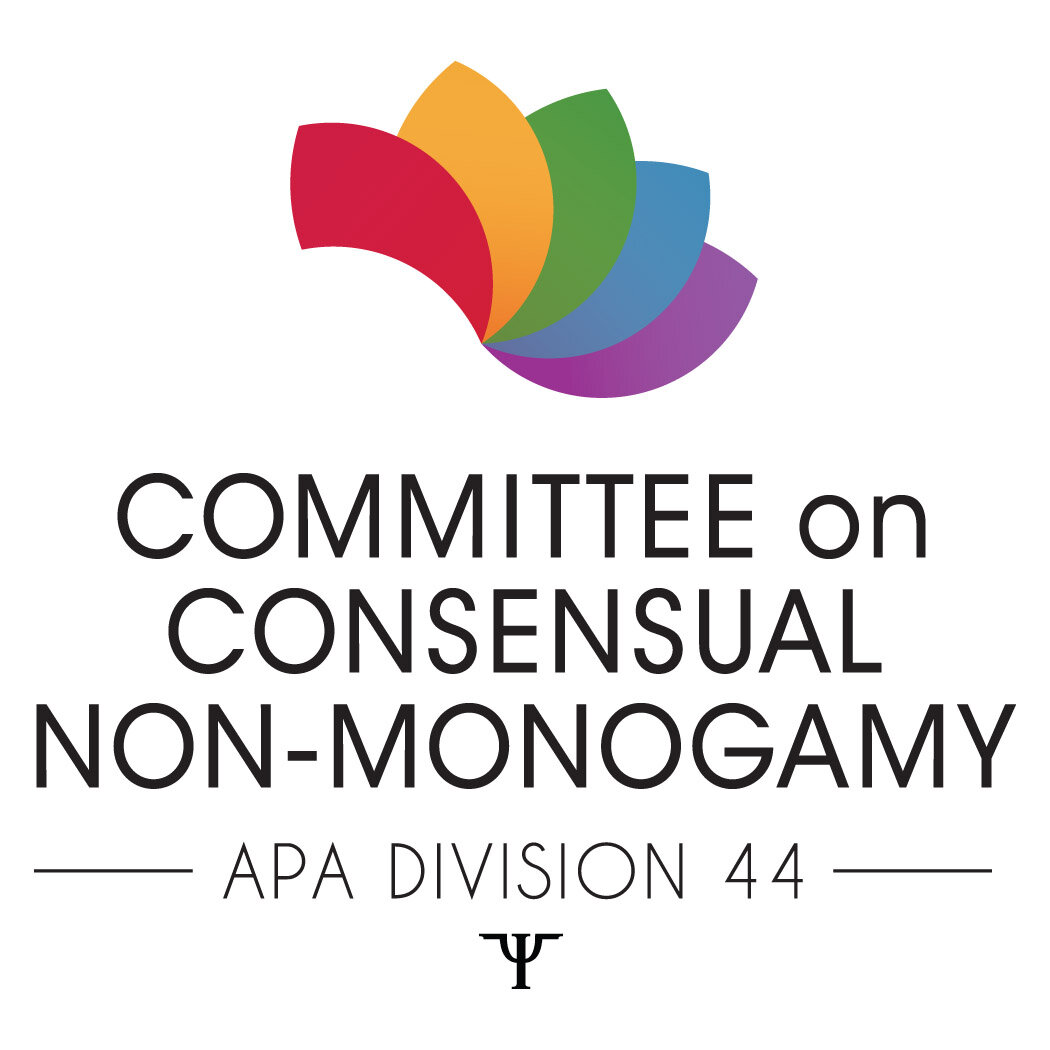About
Background: Psychological Research on Consensual Non-monogamy
Consensual non-monogamy (CNM) is an umbrella term for relationships in which all partners give explicit consent to engage in intimate, romantic, and/or sexual relationships with multiple people. These are consensual relationships, not to be confused with sexual infidelity. Common forms of CNM include polyamory, open relationships, swinging, and “monogamish” relationships.
Engagement in CNM is common. Approximately 1 out of 22 people who are currently in a romantic relationship identify as part of a CNM relationship (Fairbrother et al., 2019; Levine et al., 2018). Looking at lifetime prevalence, 1 in 5 people have engaged in CNM at some point during their life, with higher rates of engagement among lesbian, gay, and bisexual people (Fairbrother et al., 2019; Haupert, Moors et al., 2017).
Despite the high prevalence of these relationships, they are highly stigmatized and misunderstood. Many people assume CNM relationships to be dysfunctional and problematic when compared to monogamous relationships (Moors, et al., 2013). However, a growing body of empirical research suggests otherwise. For instance, people engaged in CNM and monogamy report similar levels of relationship satisfaction, trust, commitment, and psychological health (Balzarini et al., 2019; Conley et al., 2017; Rubel & Bogaert, 2015).
People engaged in CNM frequently report experiencing stigma and/or discrimination in social and healthcare settings. In addition, people engaged in CNM with children frequently experience criticism and in some cases, discrimination in the form of losing child custody (Sheff, 2011). In a mental health setting, approximately 1 in 5 people engaged in CNM indicated that their therapist lacked basic knowledge about CNM and 1 in 10 reported that their therapist pushed them to terminate their CNM relationship (Schechinger, et al., 2018). These harmful therapy practices were linked with negative outcomes such as clients finding therapy unhelpful and ending therapy prematurely.
Creation of the APA Division 44 Committee on CNM
In light of the challenges facing the CNM community, the CNM Task Force was developed to promote research, evidence-based practices, and social justice for people engaged in diverse forms of intimate relationships. In 2014, Drs. Amy Moors and Heath Schechinger published a paper referencing the need for a task force to address CNM and other stigmatized sexualities within the American Psychological Association (APA). Then in June 2017, Dr. Schechinger published an article calling for the creation of a task force in APA Division 44 (Society for the Psychology of Sexual Orientation and Gender Diversity) dedicated to CNM. In January 2018, a proposal from Drs. Heath Schechinger, Amy Moors, and Michelle Vaughan to create a Consensual Non-Monogamy Task Force was unanimously accepted by the APA Division 44 Executive Board. The CNM Task Force eventually grew into an interdisciplinary team of more than 80 researchers, mental and medical health professionals, legal scholars, educators, and graduate students committed to celebrating the diversity of the CNM community and recognizing the importance of multiple, intersectional dimensions of identity. The CNM Task Force marked the first time a national scientific association committed to formally recognizing and supporting consensual multi-partner families and relationships.
In January, 2021 the Executive Board of Division 44 solidified their commitment to CNM by unanimously approving a proposal for the CNM Task Force to become a permanent Committee within the Division. This historic vote ensured that CNM will have perpetual representation and voting rights within Division 44. Becoming a Committee reflects steps previously made by Division 44 to be inclusive of the lesbian, bisexual, and transgender communities and signals the increased understanding and integration of CNM happening globally. Drs. Schechinger and Moors continue to serve as Co-Chairs of the Committee on CNM.
For a Update on our progress & planned initiatives as of 2026, see p. 20 of the APA Division 44 Newsletter here:

